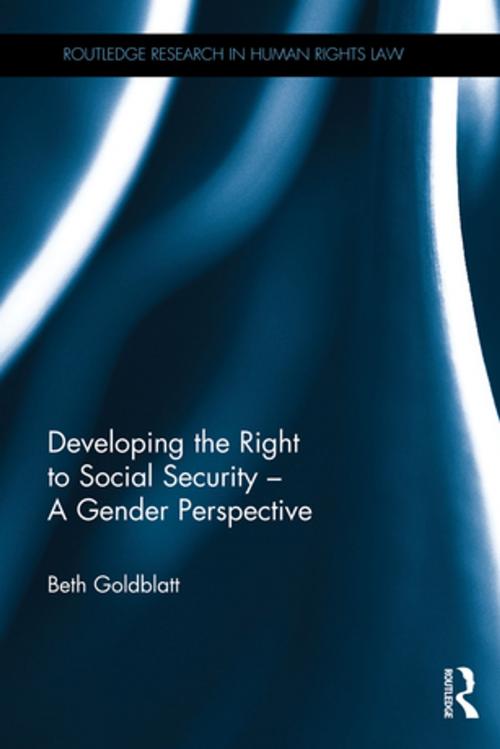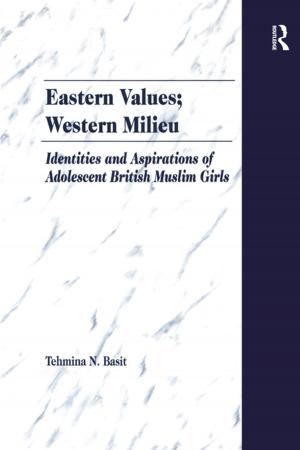Developing the Right to Social Security - A Gender Perspective
Nonfiction, Social & Cultural Studies, Social Science, Gender Studies, Reference & Language, Law, Sociology| Author: | Beth Goldblatt | ISBN: | 9781317311379 |
| Publisher: | Taylor and Francis | Publication: | June 10, 2016 |
| Imprint: | Routledge | Language: | English |
| Author: | Beth Goldblatt |
| ISBN: | 9781317311379 |
| Publisher: | Taylor and Francis |
| Publication: | June 10, 2016 |
| Imprint: | Routledge |
| Language: | English |
The right to social security, found in international law and in the constitutions of many nations, contributes to the alleviation of poverty globally. Social security and its articulation as a human right have received increased attention in recent years both in response to austerity cuts to welfare in developed countries and as a means of lifting millions out of poverty in developing countries. Women, disproportionately affected by poverty in all parts of the world, stand to gain from a right to social security that takes cognisance of gender discrimination and disadvantage.
This book interprets and redefines the right to social security from a gender perspective. Drawing on feminist theory, the book formulates a conceptual approach and a set of principles for a substantively equal, gendered right to social security. In so doing, it challenges the relationship between the right to social security and traditional conceptions of work that exclude women’s labour including their caring roles. It argues that the right must have application at the transnational level if it is to address the changing nature of women’s work due to globalisation.
The book applies the framework and principles it develops to a study of international law focusing on the work of key United Nations human rights bodies. It also demonstrates the value of this framework in its analysis of three countries’ social security programmes - South Africa, Australia and India. In combining feminist thought on the nature of work and care with equality theories in developing the right to social security from a gender perspective this book expands the capacity of the right to advance gender equality and address gendered poverty.
The right to social security, found in international law and in the constitutions of many nations, contributes to the alleviation of poverty globally. Social security and its articulation as a human right have received increased attention in recent years both in response to austerity cuts to welfare in developed countries and as a means of lifting millions out of poverty in developing countries. Women, disproportionately affected by poverty in all parts of the world, stand to gain from a right to social security that takes cognisance of gender discrimination and disadvantage.
This book interprets and redefines the right to social security from a gender perspective. Drawing on feminist theory, the book formulates a conceptual approach and a set of principles for a substantively equal, gendered right to social security. In so doing, it challenges the relationship between the right to social security and traditional conceptions of work that exclude women’s labour including their caring roles. It argues that the right must have application at the transnational level if it is to address the changing nature of women’s work due to globalisation.
The book applies the framework and principles it develops to a study of international law focusing on the work of key United Nations human rights bodies. It also demonstrates the value of this framework in its analysis of three countries’ social security programmes - South Africa, Australia and India. In combining feminist thought on the nature of work and care with equality theories in developing the right to social security from a gender perspective this book expands the capacity of the right to advance gender equality and address gendered poverty.















